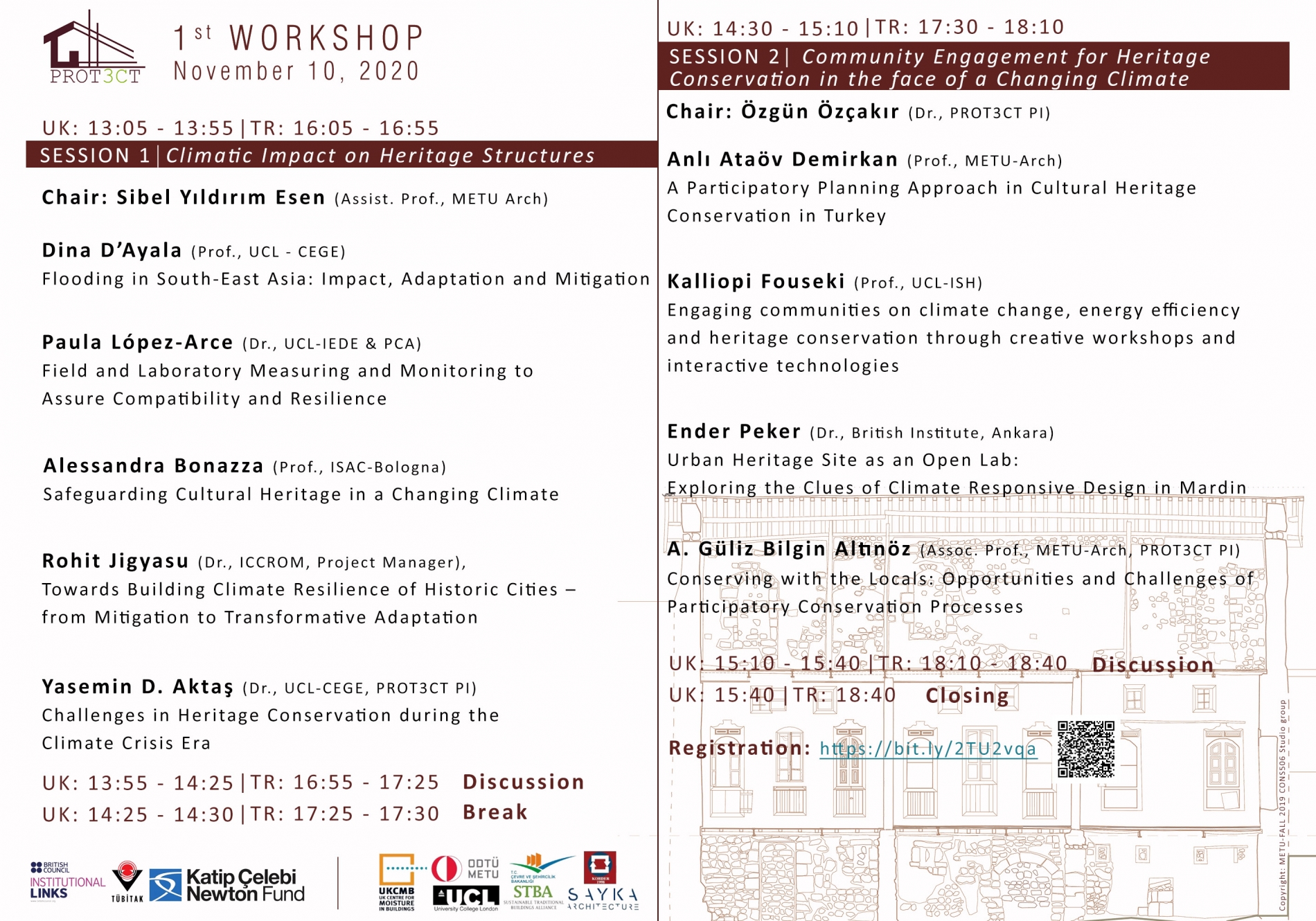1st Workshop
Last Updated:
- English
- Türkçe
Brief for the 1st Protect Workshop on Nov 10, 2020
British Council & TÜBİTAK Project
PROcesses for sustainable retrofit of Traditionaldwellings in Turkey for Climate-resilience, Conservation, and ComforT" (PROT3CT)
----------------------------------------
The workshop was held online through Zoom on Tuesday 10 Nov between 13:00- 15:30 UK time through two main sessions:
1) Traditional dwellings under climatic impact and 2) community engagement.
Background
PROT3CT is a cross‐disciplinary joint research project led by Middle East Technical University (Turkey) and University College London (United Kingdom), and funded by British Council and TÜBİTAK through Newton Funds Institutional Links. The specific objectives of PROT3CT are to identify cost effective packages of improvement options to enhance the energy performance of traditional dwelling typologies in Turkey, help increase awareness of residents, custodians of heritage, policymakers and academia of climate resiliency, and provide knowledge exchange to establish sustainable impact and collaborative links.
Totally, four engagement workshops was held on behalf of the PROT3CT as listed below:
- 1st Workshop on Traditional Dwellings under Climatic Risk and Community Engagement
- 2nd Workshop on Energy Performance Modelling
- 3rd Workshop on Retrofit Solutions
- 4th Workshop on Energy Efficiency and Conservation through the Lenses of Practice and Policy
PROT3CT project partners:
Turkish Ministry of Environment and Urbanisation, KORDER and SAYKA, UK Centre for Moisture in Buildings (UKCMB), and Sustainable Traditional Buildings Alliance (STBA)
Objectives
The biggest value of this initiative was to provide exchange of knowledge and strengthen the network in the relevant research community. This workshop aimed to bring a group of climatologists, meteorologists, and heritage conservation experts together to discuss the criticality of the climatic impacts on traditional dwellings and the effectiveness of community engagement in improving climate mitigation and adaptation strategies. This understanding will help us to prioritise the risks and to conduct the most proper retrofit strategies in the project considering both residents' and policy makers' requirements.


